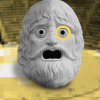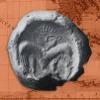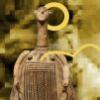Hello, my name is Michalis Katsimitsis.
I'm a Doctor of Philosophy and i have developed a programme "Greek Philosophy" The Art of Living under the academic supervision of Sotiris Fournaros who was an assistant professor of Philosophy at the University of Athens.
The aim of the programme is to offer you a different approach to Greek Philosophy. In most cases we are used to attending philosophy programmes that just present and analyze what Thales had said about the origin of the world or Plato's theory of forms or Aristotle's logic and so on.
No matter how interesting how these programmes may be, they are incomplete because they lack a fundamental characteristic of Greek Philosophy that is its connection to life.
Ancient Greek Philosophy was not a search for knowledge for knowledge's sake, but it means to improve one's life, to alleviate its burdens and to offer a kind of guide for a well-being.
Of course one could reasonably argue that the times of Heraclitus, of Socrates, of Protagoras were totally different to ours, this is true but it is also the reason why Ancient Greek Philosophy remains important because it teaches us even today valuable lessons regarding our everyday lives.
Therefore, the programme "Greek Philosophy" the Art of Living does not only analyze the philosophies of Ancient Greece in such a way that they're easy to comprehend.
It also highlights the most valuable lessons that give us the opportunity to look into our life from a different perspective.
But the programme goes even further.
With our workshops, you'll have the opportunity to exercise and develop your philosophical thinking since you will be called to develop philosophical arguments on a variety of subjects.
Greek Philosophy - The Art of Living is a programme that everybody with an interest in Philosophy and don't know how to use it to improve one's life can and must follow.v
Come join us to this wonderful journey from Ancient Greece to Modern Life.














